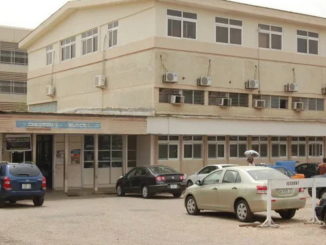 Former President John Dramani Mahama views the recent discussion over the no-beds syndrome as a rallying point to improve access to healthcare infrastructure.
Former President John Dramani Mahama views the recent discussion over the no-beds syndrome as a rallying point to improve access to healthcare infrastructure.
In a tweet, Mr. Mahama described the death of a 70-year-old man, Anthony Opoku-Acheampong, over the lack of beds as a “very sad development.”
Anthony Opoku-Acheampong died after seven hospitals in Accra turned him away over claims that there were no beds.
Mr. Mahama also revisited criticism of his focus on developing infrastructure when he was President.
To him, this is a reminder that providing infrastructure is key despite the then-opposition New Patriotic Party’s (NPP) retorts that Ghanaians could not eat infrastructure like roads.
The directive from the GHS also said hospitals and clinics should make every effort to stabilize the patients before referring them to the next level facilities.
An official communication was dispatched by the GHS to all regional and district directorates of health to enforce the directive.
However, there is a sense that the Ministry of Health does not seem to have a clear strategy to deal with the matter.
The Public Relations Officer (PRO) for the Ministry of Health, Robert Cudjoe, said on Citi TV’s The Point of View that the ministry has been advising hospitals to desist from the practice.
“We keep talking, and whoever is found culpable is punished. It’s a behavioural matter,” he said.
The deceased’s family started searching for a hospital for him at 11:00 pm on June 2, travelling for about 46 kilometres in total, across the seven hospitals, till he eventually died at around 3:30 am.
The first hospital Prince Anthony Opoku-Acheampong and his family went to before he died was a private facility, C&J Medicare Hospital.
Over there, a nurse confirmed that Prince Anthony needed to be hospitalized after a brief assessment, but said the hospital could not cater for them.
From there, the family moved on to the Korle Bu Polyclinic, Ridge Hospital, Police Hospital, the Trust Hospital, the La Polyclinic, before finally arriving at the LEKMA Hospital at Teshie, where he eventually died.
The Ghana Health Service Director-General, Dr. Anthony Nsiah-Asare, said the Service was first going to set up an investigative Committee to probe the incident.
The tragic death was a failure of the emergency healthcare system, he said.
–
Credit: citinewsroom.com



